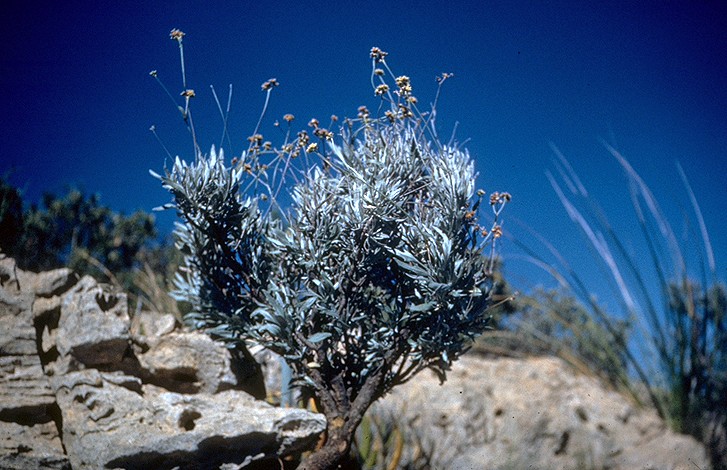In a recent study published in the journal Industrial Crops and Products, MIDAS researchers from the University of Castilla-La Mancha (UCLM), ITAP and CIEMAT have revealed the untapped potential of guayule (Parthenium argentatum A. Gray) as a source of valuable essential oils. Guayule, a shrub native to the Chihuahuan Desert, is primarily known for its rubber and resin production. This research highlights the plant’s capacity to yield substantial amounts of essential oils, in addition to rubber and resin, opening new avenues for its commercial utilization.

The study examined 16 guayule accessions, including pure lines and hybrids, grown under identical conditions. The researchers found significant variations in essential oils yield and composition among the accessions, with some exhibiting yields comparable to those of established aromatic plants, reaching up to 0.9% of their dry weight.
The essential oils obtained from guayule accessions were comparable with other aromatic plants such as Rosmarinus officinalis and Salvia officinalis, demonstrating the economic potential of guayule for essential oils. The terpene content in the guayule essential oils was consistent with aromatic plants such as Thymus pannonicus and Origanum vulgare, while the content of sesquiterpenes was higher than that reported for other plants such as Lavandula x intermedia L. (4%) or Lavandula angustifolia L.. The researchers also observed that the essential oil composition changed throughout the flowering season suggesting that the timing of harvest could be crucial for tailoring the profile of essential oils to specific applications.
Furthermore, the study demonstrated the feasibility of extracting guayule essential oils on an industrial scale, achieving a yield of 0.5%-0.6% (dry basis) and consistent composition. This aspect underscores the potential for integrating essential oil production into existing guayule cultivation and processing systems, enhancing the economic viability of this versatile plant.

